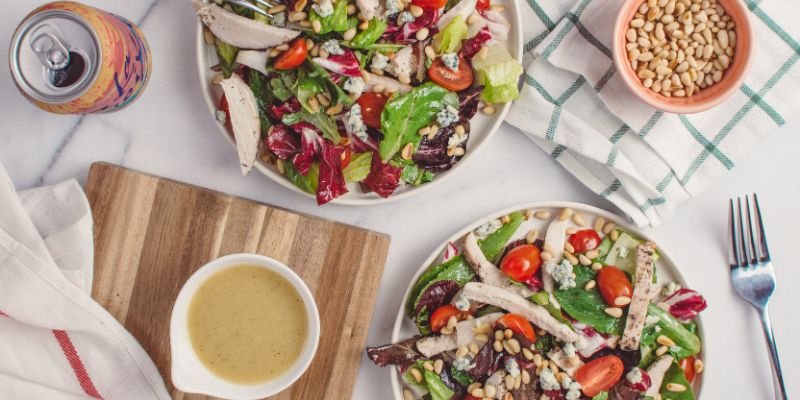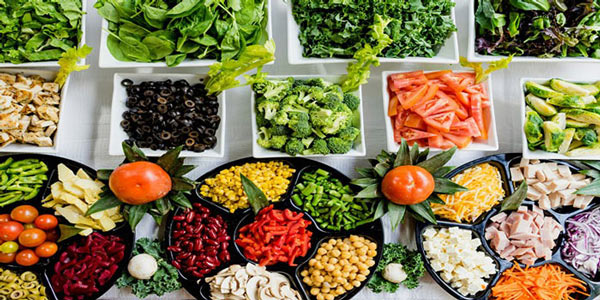Tailoring Your Diet for Gastritis Relief and Healing
Dec 04, 2023 By Nancy Miller
One of the most prevalent gastrointestinal disorders, gastritis, affects the stomach lining. Inflammation of the stomach lining is a hallmark of this condition, which may cause a variety of symptoms and even problems. Bacterial infections, heavy alcohol use, long-term use of nonsteroidal anti-inflammatory medicines (NSAIDs), and autoimmune diseases are among the many potential causes of gastritis, which may manifest either abruptly (acute gastritis) or gradually (chronic gastritis). Gastritis may affect a person's health in a variety of ways, from a little ache to more serious issues, including nausea, vomiting, indigestion, and stomach pain. Erosion or ulceration of the stomach lining, which may be caused by persistent gastritis, might need medical intervention in some instances. In order to effectively manage and avoid gastritis, which may greatly affect one's quality of life if untreated, it is essential to understand the condition's origins, symptoms, and possible repercussions. For anybody looking for information about gastritis, this article will cover all the bases, from symptoms and causes to diagnosis and therapy, as well as preventative methods.

Fundamentals of a Gastritis Diet Plan
Key Dietary Principles for Gastritis
To alleviate symptoms and speed up the healing process of the stomach lining, it is essential to follow certain dietary guidelines while planning a gastritis diet. Emphasising the consumption of meals that are easy on the stomach and digestion is one basic idea. For less aggravation and pain, go for low-fat and low-spice alternatives. Another way to avoid gastritis-related overproduction of stomach acid is to eat smaller, more frequent meals throughout the day.
Foods to Embrace and Avoid
Lean protein foods, such as skinless chicken, fish, tofu, and beans, are crucial in a gastritis diet plan because they deliver critical nutrients without overwhelming the stomach. Whole grains, cereals, and fruit and vegetable options that are high in fibre (avoid acidic types) may also help maintain regular bowel movements and good digestive health. If you suffer from gastritis, it's best to stick to non-citrus fruits such as bananas, melons, and apples. People who experience gastrointestinal distress after consuming dairy products may find that lactose-free or plant-based milk and yoghurt are more to their liking.
Some foods might make symptoms worse, so it's important to stay away from such. You should avoid eating hot foods, particularly spicy spices and meals since they might irritate the lining of your stomach and make gastritis symptoms worse. Similarly, if you suffer from gastritis, it's best to limit your intake of fatty and fried meals or switch to low-fat alternatives. Due to their acidity, citrus fruits such as lemons, grapefruits, and oranges should not be consumed by those suffering from gastritis. The acidity of tomatoes and tomato-based sauces is another reason to stay away from tomato-based foods. Finally, since they are hard on the stomach lining and make gastritis symptoms worse, it is recommended to restrict or eliminate coffee and alcohol intake.
Managing Gastritis: A Comprehensive Diet Guide
Meal Planning for Gastritis Relief
To properly manage gastritis, it is vital to create a balanced food plan. Eat more meals that are easy on the digestive system without sacrificing nutrition. For a healthy diet, it's important to eat lean proteins like skinless chicken and fish, plenty of fibre-rich fruits and vegetables (not acidic ones), non-citrus fruits like berries and bananas, and dairy-free or plant-based milk, yoghurt, and other dairy substitutes. If you suffer from gastritis, these options may help ease your symptoms and restore digestive comfort.
Importance of Hydration and Food Timing
People who suffer from gastritis must make sure to drink enough water. To keep yourself well hydrated, which will ease the lining of your stomach, drink plenty of water throughout the day. Another thing to keep in mind is the time of your meals. Aim for smaller, more frequent meals instead of three big, substantial ones. Gastritis symptoms might be exacerbated by acid reflux. Therefore, it's best to avoid eating just before bed. Better gastritis control and digestive health may be achieved via thoughtful meal scheduling and proper hydration.
Healing Foods in Gastritis Diet
Nutrient-Rich Foods for Gut Health
It is crucial to focus on nutrient-rich meals that support gut health and assist in gastritis healing while coping with the condition. Yoghurt and kefir are examples of probiotic foods that may aid in reducing inflammation and restoring a healthy gut microbiota. Furthermore, the stomach lining is protected against further damage by consuming foods that are high in antioxidants, such as nuts, berries, and leafy greens. Additionally, eating ginger and turmeric may help calm the stomach and reduce inflammation. Incorporating these nutrient-dense foods into your diet will help with gastritis healing and general digestive health.

Herbal Remedies and Their Role
Traditional herbal medicine has a long history of success in treating gastrointestinal issues and promoting overall health. One of the most well-known relaxing teas, chamomile helps alleviate gastritis symptoms. If you suffer from bloating or indigestion, peppermint tea may help. Supplemental slippery elm may cover the gut lining with a protective layer. Because of its emollient qualities, marshmallow root helps alleviate pain and inflammation. Although these natural treatments may help alleviate gastritis symptoms, it is important to talk to your doctor before adding them to your diet, particularly if you have any preexisting illnesses or are on any drugs. When treating gastritis, herbal medicines should be used in conjunction with a healthy diet, not as a substitute for it.
Avoiding Gastritis Triggers Through Diet
Identifying and Avoiding Trigger Foods
Finding and avoiding foods that bring on gastritis symptoms is an important part of managing the condition. Spices, fried and fatty meals, citrus fruits (oranges, lemons, grapefruits), and tomato-based products are common foods that induce food allergies. You should also cut down on or cut out alcohol and caffeine from your diet. If you want to know what foods make you sick so you can avoid them, keeping a food journal is a good place to start. You may lessen the intensity of gastritis symptoms and protect the stomach lining from irritation by avoiding these meals.
Adjusting to Dietary Changes
Gastritis treatment requires making substantial dietary adjustments, which may be difficult. In addition to avoiding meals that set off your gastritis symptoms, you should make an effort to consume more foods that calm your stomach. Opt for lean proteins, high-fiber foods, fruits without citrus, and dairy substitutes. Try several herbal cures, such as peppermint tea or chamomile tea, to discover the one that suits you best. Making these dietary changes gradually will help you adapt more easily and keep them off for the long haul. To effectively manage gastritis, it is important to tailor your diet to your unique requirements, keeping in mind that people's tolerances to certain foods might differ.
Supplementing Your Gastritis Diet Plan
Gastritis treatment should always begin with a healthy, balanced diet, but some people may find relief from their symptoms by taking additional supplements to make up for lost nutrients or improve gut health. Probiotics help maintain a balanced microbiota in the digestive tract, and vitamin B12 is a common supplement for those who may not get enough of it. A healthcare provider can assess your gastritis severity and individual requirements to provide individualised supplement suggestions, so it's best to get their opinion before adding any new supplements to your routine.
Conclusion
An excellent and proactive way to manage gastritis symptoms and promote stomach healing is via dietary changes. A gastritis-friendly diet, which includes avoiding foods that bring on symptoms and, if needed, supplements, may help people live better lives with gastritis. In order to feel better and remain healthy in the long run, it's important to have an open line of contact with your healthcare professionals and stick to a gastritis-friendly lifestyle.
-
 Condition Dec 04, 2023
Condition Dec 04, 2023Tailoring Your Diet for Gastritis Relief and Healing
Learn about an effective diet treatment plan for gastritis, designed to alleviate symptoms and promote healing.
-
 Condition Feb 23, 2024
Condition Feb 23, 2024Folic Acid's Role in Lowering Stroke Risk in Hypertension Patients
Essential B vitamin folic acid decreases stroke risk in high-blood-pressure patients. Folic acid supplement users had a 20% decreased stroke risk, studies showed.
-
 Condition Jun 14, 2024
Condition Jun 14, 2024Understanding Passive-Aggressive Behavior
Learn effective strategies for handling passive-aggressive behavior to maintain healthy relationships and navigate them with ease.
-
Peace of mind Sep 05, 2024
Managing Psychosis: Effective Treatment Methods
Effective approaches to treat patients with psychosis. This article discusses essential ways to offer proper care and support for psychosis patients
